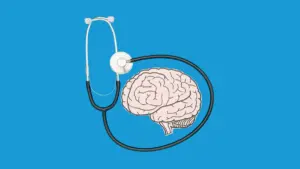Each October, ADHD Awareness Month is observed to highlight the realities of Attention-Deficit/Hyperactivity Disorder (ADHD), a condition that affects millions of children and adults worldwide. The month provides opportunities to promote education, reduce stigma, and expand access to resources for those living with ADHD.

History and Purpose
ADHD Awareness Month began as a collaborative effort by leading organizations to raise public understanding about the condition. Through awareness campaigns, online resources, and community events, the goal is to ensure that people with ADHD and their families know they are not alone and that effective treatment options are available.
Why ADHD Awareness Matters
Awareness is essential because ADHD is often misunderstood. Too many individuals face stigma or receive late diagnoses, which can affect academic success, relationships, and professional growth. By shining a light on ADHD, this month encourages open dialogue, better understanding, and improved access to treatment and support.
Understanding ADHD
Common Symptoms in Children and Adults
ADHD presents differently depending on age. In children, symptoms may include difficulty focusing in school, hyperactivity, and impulsive behaviors. In adults, it often appears as challenges with time management, organization, maintaining focus, and emotional regulation. Recognizing these symptoms early can make it easier to seek professional evaluation and support.
Dispelling Myths and Misconceptions
One common myth is that ADHD is simply “bad behavior” or a lack of discipline. In reality, ADHD is a neurological condition with biological roots. Another misconception is that only children have ADHD, when many adults also live with the condition—sometimes without a formal diagnosis. Awareness campaigns aim to replace stigma with understanding and compassion.
Events and Campaigns During ADHD Awareness Month
National Campaigns and Resources
Organizations like CHADD and the ADHD Awareness Month Coalition provide valuable educational events, webinars, and digital campaigns each October. These programs focus on sharing current research, offering professional insights, and creating spaces where families and individuals can learn and connect.
How to Participate Locally
Participation can be as simple as sharing social media posts, attending community events, or downloading resources like brochures and fact sheets from the ADHD Awareness Month website. Local organizations may also host workshops and support groups, giving people opportunities to connect face-to-face.
Resources and Support Systems
Educational Tools and Downloads
Reliable educational materials are essential for both families and individuals navigating ADHD. The ADHD Awareness Month downloads page offers fact sheets, graphics, and handouts that can be shared at schools, workplaces, or within communities to improve understanding.
Professional Treatment and Counseling
Treatment for ADHD can include therapy, behavioral strategies, and, in some cases, medication. Professional support ensures that individuals receive tailored care to meet their unique needs. Centers like South Coast Counseling provide counseling and therapeutic approaches designed to address ADHD symptoms while also supporting co-occurring conditions such as anxiety, depression, or substance use.
Peer Support and Family Involvement
Peer and family support play a significant role in navigating ADHD. Support groups—whether online or in person—offer encouragement, accountability, and shared experiences. Families who learn about ADHD can better understand and support their loved ones, creating a more stable and supportive environment.
How Oceanrock Health and South Coast Counseling Can Help
Integrated Mental Health Services
Oceanrock Health provides comprehensive mental health services, including treatment for ADHD and related conditions. By combining professional counseling, holistic therapies, and evidence-based approaches, Oceanrock helps individuals create personalized paths toward greater stability and focus.
ADHD and Co-Occurring Conditions
ADHD often occurs alongside other challenges such as depression, anxiety, or addiction. South Coast Counseling specializes in addressing these complex needs, offering programs that treat the whole person rather than just the symptoms. Integrated care helps clients manage multiple conditions at once, leading to more effective long-term outcomes.
Taking the First Step
Seeking support is a powerful step toward managing ADHD. Both Oceanrock Health and South Coast Counseling provide safe, supportive environments where individuals and families can find the help they need to move forward.
Building Awareness and Support
ADHD Awareness Month is a reminder that with the right knowledge, resources, and support systems, individuals living with ADHD can thrive. Whether you are seeking treatment for yourself or supporting a loved one, this month highlights the importance of compassion, education, and action. Together, awareness can create opportunities for growth, healing, and understanding.








